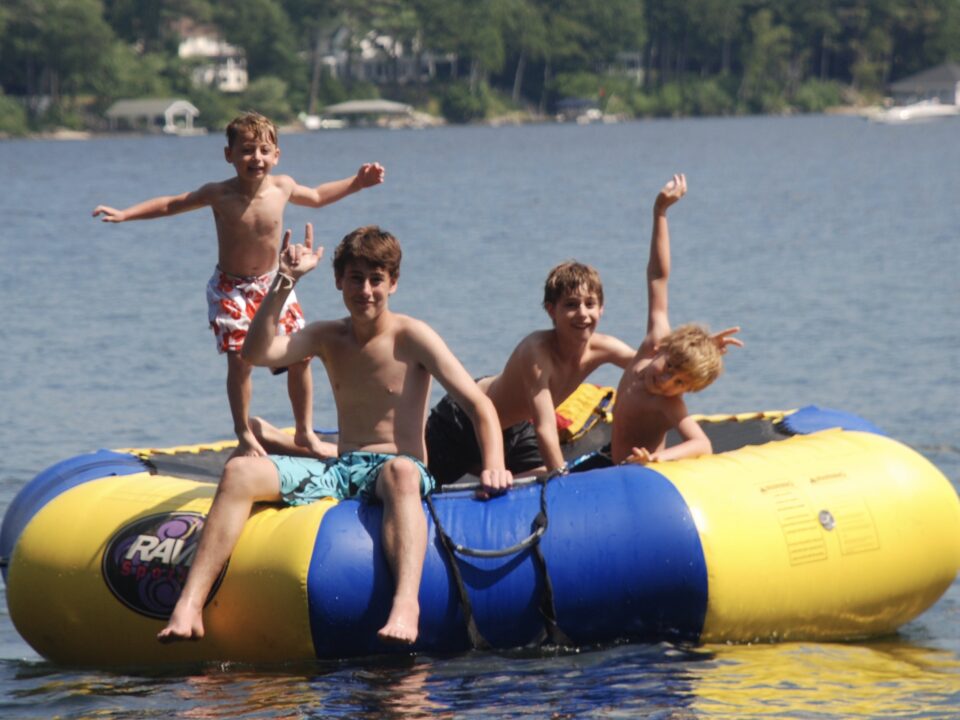
Dyslexia, Dysgraphia, Dyscalculia, Oh My!
January 28, 2025
Assistive Technology — It’s Not A Crutch!
February 11, 2025"Is There Anybody Out There?"
Feeling Isolated Raising a Neurodiverse Child
By Carol S. Siege, PCC
Founder, Family Pathways Coaching, LLC
When my son was a toddler, we moved to a new community, and I joined a neighborhood playgroup. I looked forward to getting to know other parents and building friendships while my kids played with their own new friends. But while the other boys and girls were beginning to build block towers together and giggle harmoniously, my son was off to the side, totally engaged with his toy and totally unengaged by anyone else in the room. Sometimes there were tears, sometimes there were tantrums. Rarely was there easy-going play time.
The same thing happened whether we were at school, at birthday parties, or at family gatherings. Where I craved connection, my sons – ultimately all four of them -- often needed something else entirely. I never had the luxury of letting my kids play unattended, and I worried that other parents were judging my boys – and ultimately me -- for their behaviors that seemed so out of sync with all the other children.
This fact sometimes left me feeling isolated, different from parents who seemed to have children who instinctively knew how to play together and cooperate with others.
Parents of neurodiverse children often feel isolated and misunderstood, raising children who have needs that are different from their peers. Maybe it’s the impulsive ADHD child who can’t sit still on the kindergarten carpet or grabs toys out of their playmates’ hands. Maybe it’s the child with Tourette’s who has loud outbursts in the supermarket or the library. Or perhaps it’s the child whose debilitating anxiety sends them into panic mode when the school bus arrives every morning, when birthday invitations appear...or don’t.
When it feels like you’re the only one whose child can’t get childhood right, life can feel pretty lonely.
And it’s not only the discomfort of group settings. Raising a neurodiverse child can be time consuming and exhausting. Early preparation, additional needs, constant attention. You can feel like the odd-mom (or dad)-out, and you also may feel that others are always watching your child with a critical eye: What will they do next? Who will they bother next? Parents can feel robbed of their ability to socialize while their children are playing, as other parents can do, because they are always on guard for challenges and flare-ups.
So, what can the parent of a neurodiverse child do? Find community!
- Public school districts often have Special Education P.T.A. committees (SEPTA) or similar groups that specifically support the neurodiverse community.
- Some local communities host special sports programs so children of all abilities can join in the fun and get exercise, including organizations like US Youth Soccer’s TOPSoccer.
- Local public or religious social services organizations often run afterschool or weekend programs for the neurodiverse community and their families.

- National organizations that support issues specific to a variety of neurodiverse challenges, such as CHADD (Children and Adults with Attention-Deficit/Hyperactivity Disorder), the National Autism Association, and NAMI (National Alliance on Mental Illness), offer programming for parents, professionals and advocates.
All of these organizations provide parents the opportunity for friendship and support and help us see we are not alone in our challenges. As with all areas of the human experience, we are all a work in progress. We are all struggling with something… no one is exempt. When we are willing to open up, expose our vulnerabilities and talk about the challenges we face, we may find those around us are struggling too. Finding a group who understands the particular hurdles the neurodiverse family faces can be a special kind of support.
Coaching is also an opportunity for a parent raising a neurodiverse child to be empowered to find solutions that work specifically for their own family, their own circumstance.
Maybe you don’t feel supported in school or believe your child isn’t receiving the services they deserve. Perhaps you and your spouse have different parenting styles: one of you believes in tough love, while the other believes the outside world can be harsh, better for home to be a safe space. Sometimes extended family – with all the best intentions – don’t agree with how parents are raising a child. Siblings fight – perhaps for attention, perhaps because their neurodiverse sibling is aggressive or unpredictable. And of course, caregivers do not always remember how important it is to care for themselves as they care for others.
Family Pathways Coaching provides time and space for parents raising neurodiverse children to discuss in a nonjudgemental environment what is going on in their lives right now. To discover what they want that they do not have. And to empower them to find the answers that make sense in their own lives.
Reach out today and remember, you never have to walk this road alone.




